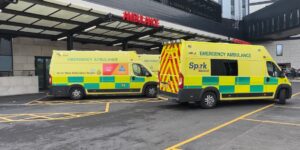
NHS Cheshire and Merseyside have revealed new initiatives which will improve health care and help speed up discharge for patients.
The region can expect to see brand-new ambulances, elective hubs, virtual wards and care transfer hubs.
Preparation for winter are already under way in the region following the publication earlier this year of the NHS Urgent and Emergency Care Recovery Plan, a blueprint drawn up to help reduce waiting time and improve patients’ overall experience.
Services have also been put in place across the region that will boost resilience and capacity, and help ambulance response times and A&E performance.
Around 1,000 people across Cheshire and Merseyside are in a hospital bed who no longer need hospital care. Across the North West, this figure was over 2,200 during last winter.
Every hospital in the region is now covered by a care transport hub, which enables staff and patients to find the best discharge options for patients who are medically fit enough to leave hospital.
Going into winter, there are also 400 virtual ward ‘beds’ across the region, which will increase to 560 by the end of March. This aims to help care for patients with heart failure, chronic obstructive pulmonary disease (COPD), frailty, and paediatric conditions.
North West Ambulance Service will see an increase in staffing this winter bringing the total operating across the region to 553, including 75 new paramedics, 250 new call handlers for the 999 and NHS contact centres, and 32 new emergency medical technicians.
Professor Rowan Pritchard-Jones, NHS Cheshire and Merseyside medical director, said: “The NHS has tried and tested plans to help manage periods of high pressure, and ensuring safe care for patients continues to be our top priority.
“The public can also play their part this winter by coming forward for the right care when they need it, such as calling 111 or using the NHS 111 online to get urgent advice on the best NHS service for their clinics needs, and dealing 999 in life-threatening emergencies.”
Watch Cassie Ward’s video report here:
Featured image (c) Cassie Ward









